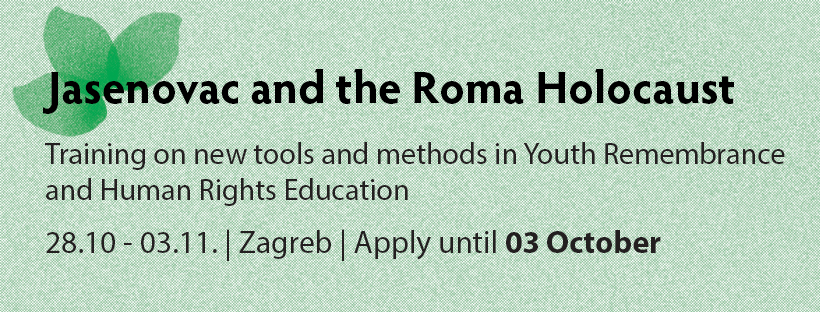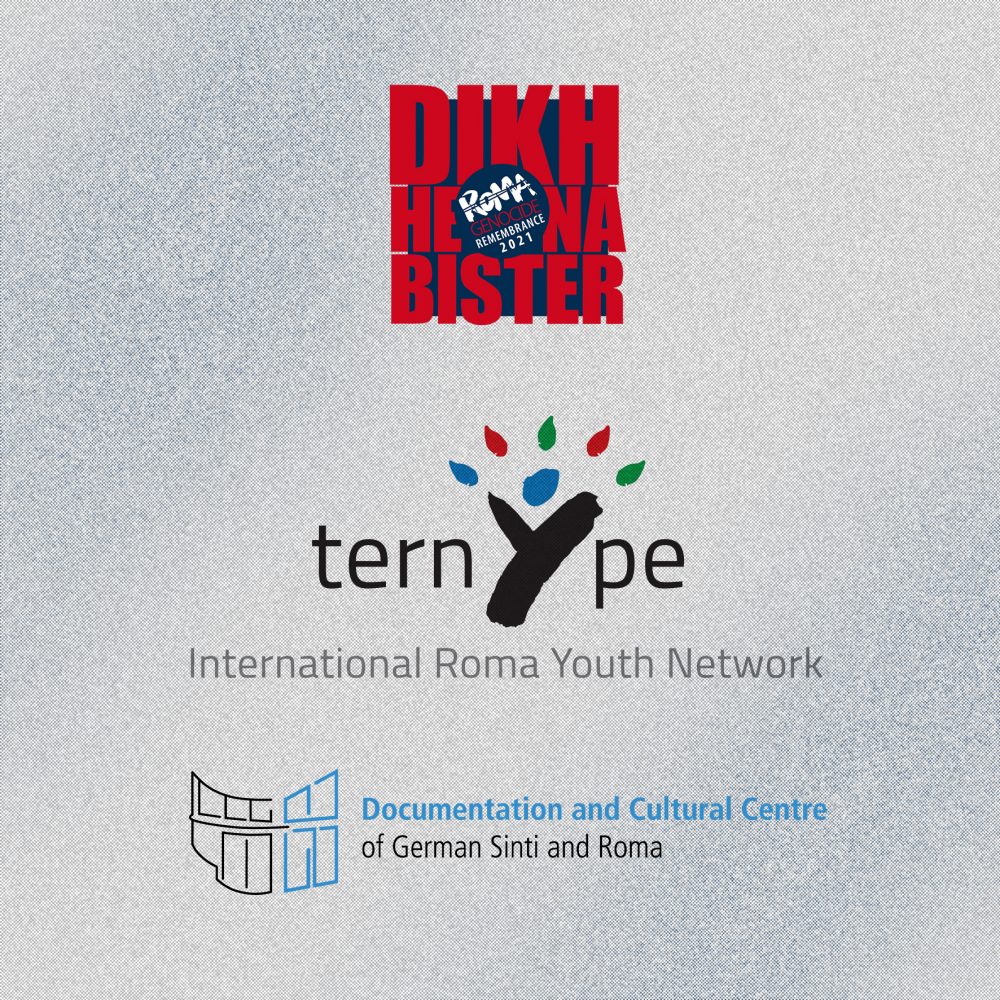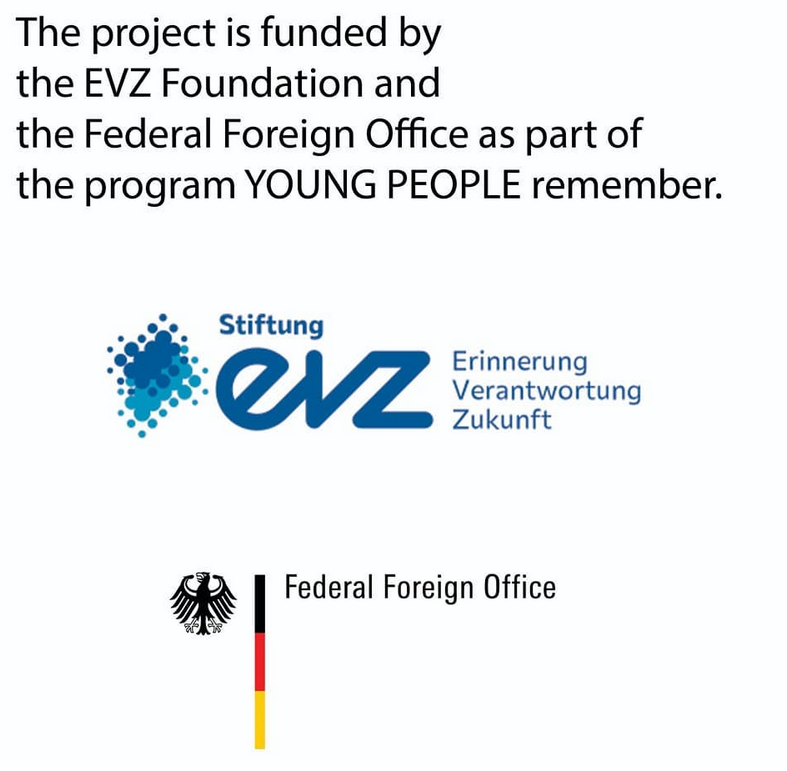Training for Trainers on Holocaust and Human Rights Education

We invite experienced Sinti and Roma and non-Roma trainers, educators, youth activists to participate in a five-day training about education and remembrance of the genocide of Sinti and Roma during World War II in order understand and challenge the mechanisms of exclusion, of racism, antisemitism and antigypsyism today.
We are creating opportunities for participants to learn about the Roma genocide at the historical site of Jasenovac and deepen their understanding and reflection on the genocide and its impact for today from the perspective of human rights as a system of moral beliefs and behavior. We will discuss the roles, responsibilities and opportunities of youth in addressing current challenges of racism, discrimination and antigypsyism in order to become agents of change and build motivation, capacity, and empowerment of young people and youth organizations and to strengthen a Roma youth movement. The visit will also strengthen educational work at the Jasenovać Museum through the international youth encounter. The memorial and the relatively new museum in Jasenovac are places to which Roma youth can make an important contribution and from which lasting partnerships can emerge.
The project will develop new formats and methods of Holocaust education at historical sites, in particular by building on the “Voices of the Victims” section of the “RomArchive” – the digital archive of Sinti and Roma. The online archive has made some sources/testimonies from Croatia and the Western Balkans accessible, which can be used to create new educational formats and tools. The participants will test new creative tools and methods during the training-course in cooperation with educators and artists.
RomArchive (www.romarchive.eu) creates an internationally accessible, reliable source of knowledge on the Internet, which counters stereotypes and prejudices with facts. For the first time, the story of the genocide committed against the Romani minority was told exclusively from the perspective of the victims. Therefore, the sources can establish counter-narratives for Roma youth organisations to use in their educational work.
Deadline for the application: 3rd October 2021
Notification of acceptance: 6th October 2021
Date of the meeting: 28. October – 3. November 2021
Programme days: 29th October – 2nd November 2021
In case of any inquires, please, don’t hesitate to contact us:
marius.luedicke@sintiundroma.de
peter.leponi@sintiundroma.de
Activity
The training is based on non-formal education methods, including working groups to share experiences and practices, training of trainers in methods and facilitation approaches, working groups to develop initiatives, and reflection and evaluation sessions. The training includes a visit to the Jasenovac Memorial and Museum and develops approaches for youth work on memory education at historical sites. The trainers have the opportunity to test their methods and build their capacity to implement concrete Holocaust and human rights education activities in their own local settings.
Aims
The training course about non-formal education on the Roma Holocaust, Remembrance and Human Rights Education, will focus on the non-formal educational approaches to strengthen active citizenship for our democratic and European values such as human rights, respect of diversity and nondiscrimination, as well as to share and develop strategies to combat antigypsyism, racism, anti-Semitism and extremism in Europe.
Objectives
– Creating opportunities for participants to learn about the Roma genocide at the historical site of Jasenovac, the historical and political context (mechanisms and reasons) that led to the Holocaust in Croatia and neighbouring countries, and the consequences for today.
– Deepening understanding and reflection on genocide and its impact for today from the perspective of human rights as a system of moral beliefs and behaviour;
– Discuss the roles, responsibilities and opportunities of youth in addressing current challenges of racism, discrimination and antigypsyism in order to become agents of change;
– Build motivation, capacity, and empowerment of young people and youth organizations to engage in local, national and international youth work, and to strengthen a Roma youth network
– Strengthen educational work at the Jasenovac Museum through the international youth encounter and enable new cooperation’s with memorial sites and Roma youth selforganizations


